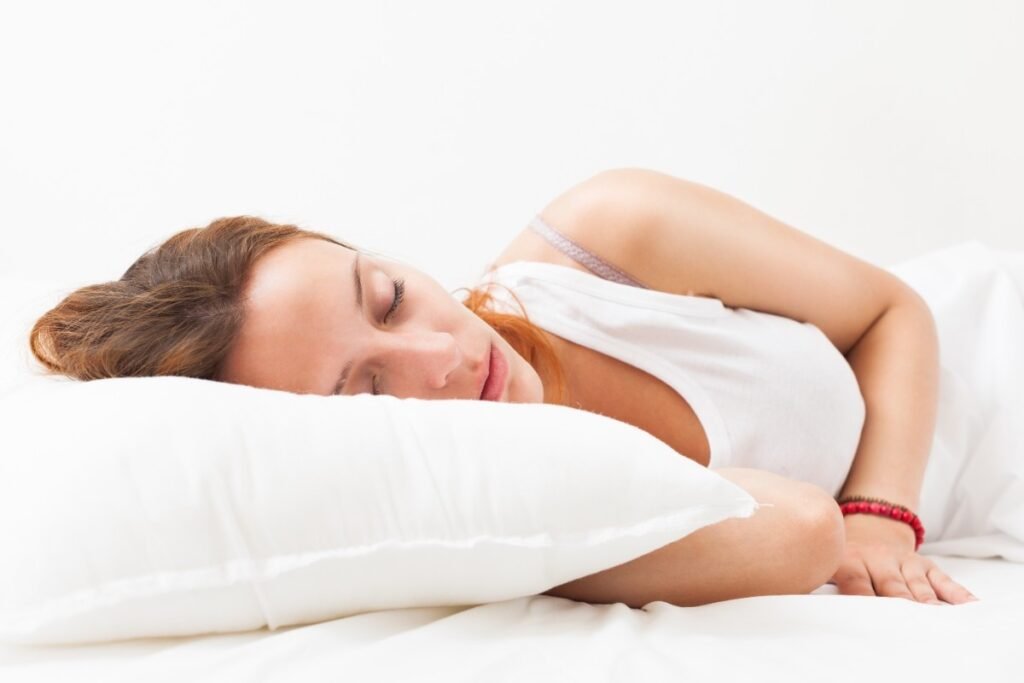Can be stop sleeping pills?
Your sleep may get bad when you stop sleeping pills. We call this phenomenon rebound insomnia. Talk to your healthcare provider about how to properly stop using sleep help if you have been using them for long time. It can take months to wean yourself off pills.

Are sleeping pills harmful if used every night?
Prescription sleeping pills despite their effectiveness can lead to dependence and other unwanted side effects. Because of this risks it is advisable to avoid using this pills long-term. Additionally it is not advisable to take over-the-counter sleeping pills every night.
Some sleeping pills such as Ambien have short half-life of two to three hours. Others pills have long half-life such as Valium which lasts about 48 hours.
The following are short term side effects:
- Fatigue and drowsiness
- Headache
- Squeamishness
- Confusion
- Constipation or diarrhea
- Dry mouth
- Muscle weakness
- Slow brain processing and decision making
- Colic, distension, gas in stomach or indigestion
The following are long term side effects:
- Risk of dementia, specially in older adults
- Alzheimer’s disease, brain deterioration and poor memory.
- Can lead to depression.
- Sexual dysfunction
- Fear of falling unconscious.
- Sleep related respiratory depression which can be fatal.
What pills play role in sleep?
- Diphenhydramine and Doxylamine is sedating antihistamine.
- Your natural sleep wake cycle is controlled by hormone melatonin.
- Valerian plant is occasionally used to make supplements that help people sleep.
What to do for stop sleeping pills?
Should you choose to stop sleeping pills. This is comprehensive guide to help you stop sleeping pills safely:
1. Consult your doctor
Consult medical expert before stopping sleeping pills. They can provide tailored guidance based on your medical history and type of medication you are taking.
Tapering plan: If your doctor agrees they will likely recommend that you slowly reduce your dosage over time as opposed to stopping all at once. This process called tapering, easy transition and reduces withdrawal symptoms.
2. Gradual reduction (tapering off)
Avoid stopping pills suddenly as this can result in withdrawal symptoms such as agitation, anxiety or trouble sleeping. You can get help from healthcare professional to create tapering schedule.
Depending on pills your doctor may recommend reducing dose over period of weeks or months to allow your body to adjust.
3. Develop good sleep hygiene
Regular sleep schedule make sure you go to bed and wake up at same time every day.
Create night time routine like before bed do something relaxing ( reading, meditating or taking a warm bath) to let your body know it’s time to rest.
Increase your sleep environment make sure your bedroom is cool, quiet and dark so you can sleep well.
Restrict use of stimulants like avoid nicotine, coffee and heavy meals before bed.
4. Explore non-medical sleep related options
Cognitive behavioral therapy for insomnia treatment which focuses on changing sleep related attitudes and actions is very successful in treating persistent insomnia.
Relaxation techniques like you can relax and prepare for sleep by engaging in techniques such as progressive muscle relaxation, deep breathing or guided imagery.
Regular exercise but not just before bed can help improve quality of your sleep.
5. Be patient with yourself.
When you first stop taking your pills it’s common to have some trouble sleeping condition called rebound insomnia. As your body gets used to sleeping without pills this usually gets better over time.
It can take a few weeks or months to get used to pills free sleep schedule.
6. Track your progress
Track your sleep as you wean yourself off pills keep sleep journal to track your progress and sleep patterns. Note any changes in your energy levels, mood or sleep patterns.
Don’t be afraid to ask your doctor for more advice if you are having trouble sleeping without pills. They may be able to suggest additional therapies or treatments to help you sleep.
7. Use natural remedies with your doctor’s permission
Melatonin in short term this naturally occurring hormone may help regulate your sleep wake cycle.
Herbal remedies like lavender, chamomile and valerian root are often used as natural sleep pills it’s important to talk to your healthcare professional about them to make sure they are safe for you.
8. Watch for withdrawal symptoms
After stopping pills contact your doctor immediately if you experience any side effects such as anxiety, restlessness or excessive sleepiness. You may need to try other sleep management techniques or change your tapering schedule.
Conclusion
A important first step in improving long term sleep health and reducing pills dependency is to wean yourself off sleep pills. Long term use of sleep pills can lead to tolerance, dependence and potential negative effects, even if they can be helpful in treat temporary sleep disorders. To decrease symptoms and treat underlying cause of sleep problems, it is advisable to gradually wean yourself off sleep medications under supervision of healthcare provider.
In more to discontinuing sleep medications, implementing natural sleep strategies such as stress management, relaxation techniques and good sleep hygiene can greatly improve sleep quality. Better, more restful sleep is result of lifestyle changes that include regular exercise, a balanced diet and reducing caffeine.
FAQ’s
Q: What are risks of suddenly stopping sleeping pills?
A: Symptoms such as anxiety, restlessness and difficulty sleeping can occur when sleeping pills are suddenly stopped. To reduce these side effects, gradual tapering under doctor supervision is advised.
Q: Are pills necessary for good sleep?
A: No, many people can get better sleep without pills if they manage their stress, improve their sleep environment and practice relaxation techniques. Healthy sleep practices can gradually improve quality of your sleep, although it may take some getting used to.
Q: What natural option help in sleep?
A: Natural options to sleep pills include:
- Supplemental melatonin: A hormone that regulates circadian rhythms.
- Herbal teas: Lavender tea, valerian root and chamomile tea are relaxing.
- Meditation: Relaxation techniques and easier transition to sleep.
- Aromatherapy: Relaxation can be increase through essential oils such as eucalyptus and lavender.
Q: What should I do if I still have trouble sleeping after taking sleeping pills?
A: If you are still having trouble sleeping after taking sleeping pills see your doctor. They can check underlying causes, suggest non-drug treatments or offer methods to more successfully address sleep problems.
